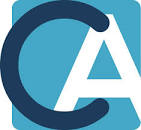
We’re being told that coding and technology is the future of the job market, as automation looks to take over plenty of industries.
We’re also in an unprecedented and early inception of A.I technology, with many anxious about how apps like ChatGPT, A.I art and voice-over deepfakes will shape the future of creative and educational industries.
As we move into a greener future, politicians are also raising the flag that many should transition from mining and fossil industries into information technology industries (like programming, cybersecurity and other IT fields).
Upskilled is also predicting that programming is expected to be one of the most in-demand skills in the future, fuelling a lot of interest for those looking for a career change or something stable in the long run.
Before diving into studying coding, however, it’s important to know the profession’s challenges. Many have been selling coding as a “catch-all free ticket to success, ” a popular marketing term ripe in scams or short-term gains.
To help properly set you up before you dive into a coding degree and start your journey in the field, we spoke with Jairo Bilbao, a professor at Coder Academy, about what everyone should know before moving into coding.

How can I maximise a basic general degree in coding?
The best way to ensure you get the most of your degree is to stay updated with the latest tech stack in the IT industry. There are many areas of coding so finding out what the most in-demand skills are and continuing your education in those spaces is essential. Areas like cloud solutions or microservices for example. Above all though, the best way to keep maximising your degree is to build projects and practice.
How competitive is the industry?
The IT industry is highly competitive especially since Covid and the increase in remote and work-from-home roles. Seek suggests that job growth in this sector will continue to remain steady so there’s never been a better time to enter the industry. Staying up to date with the latest technologies and having a portfolio to showcase your coding skills and familiarity with different tech stacks is crucial to differentiate yourself from other candidates.
How long will it take me to turn my degree into a career? Can I get a job straight out of uni, or is there more to it?
Our bootcamp is specially designed for our graduates to be able to step straight into a job once they complete their studies. Many of our graduates secure full-time work either directly from their internship placement or within a few months after completion. Many tech companies are looking for recent graduates who can easily adapt to their processes. It’s important to also research the job market, understand what companies are looking for, have a portfolio ready, and start networking early. Completing your degree is just the beginning of your journey towards a successful career.
What flexible pathways are available to me as a coder?
The best thing about becoming a coder is there are many pathways you can take within the IT industry – from mobile app development to gaming to data management coding skills are transferable across many different areas.
What are common mistakes new coders often make?
The biggest mistake a new coder can make is not asking enough questions. It’s important to ask lots and lots of questions when you are just starting out on your coding journey. Another mistake that new coders often make is thinking they’re not ready to start working. It’s normal to feel this way, but it’s important to remember even after you secure your first job, you’ll continue to learn and grow your skills while on the job!
How difficult is it to pick up coding?
Each skill and concept is different, so it depends on how you learn and understand those concepts. Anyone can learn to code but it’s generally harder to learn from theory alone, so it’s important to choose a bootcamp or course that is as hands-on as possible. Like learning any new language, coding does get easier with practice and learning from your mistakes.
What’s a hard truth people should know about coding?
You should assume that you’ll never stop learning. Technology evolves too fast, and so does coding. This means you need to be always ready to learn new languages, paradigms, patterns, etc.
How long will coding remain an in-demand skill?
Coding will remain an in-demand skill for a long time. There is some recent conversation and controversy around AI tools like ChatGPT and GitHub Copilot, and some people claim that these tools will replace software developers. However, it’s more likely that coders will simply become more efficient by using these tools, but AI will not be able to replace them anytime soon.
How can someone in coding start networking?
LinkedIn is a great platform for virtual networking. To create face-to-face connections, attend meetups and participate in hackathons.
What are the most lucrative pathways a coding degree can take me?
The IT industry offers high salaries, so pursuing any pathway with a coding degree can lead to a lucrative career. Some examples of these pathways include software development, web development, and mobile development. However, there are other fields where coders can excel, such as data science and cybersecurity, which may require additional skills beyond just coding.
What personal development skills do I need to make it as a coder?
To succeed as a coder, you need to have patience, manage frustration well, and keep an open mind to learning new things. Additionally, good communication skills, time management, and problem-solving abilities are important for success.
If you would like to learn more about where Jairo teaches, click here.
Coder Academy is an OG Australian Bootcamp provider that blends its experience in education alongside industry leaders to design courses to fill skill gaps. The courses offered are 100% online and designed to be intense, compressing qualifications that take up to one year into shorter periods without compromising learning outcomes.
If you’d like to learn more about Coder Academy and the bootcamps they offer click here to speak to an advisor.

Leave a Reply
You must be logged in to post a comment.